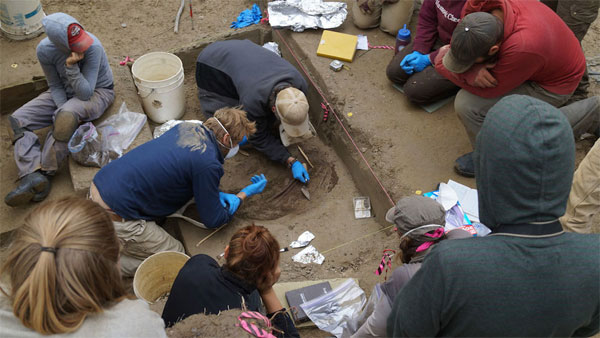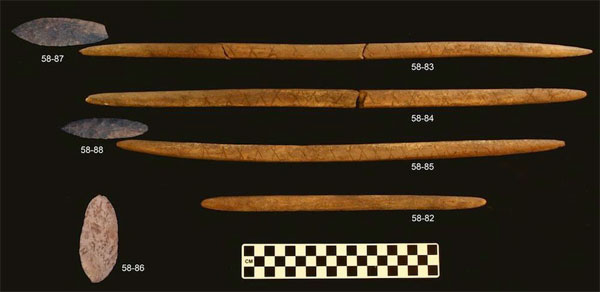New discovery about the custom of burial in the ice age
New archaeologists discovered the 11,500-year-old skeleton of two babies, hiding information about the burial custom of the last ice age in North America.
Live Science said archaeologists discovered the remains of two newborns in the Upward Sun River archaeological site, located in central Alaska. This new discovery has helped archaeologists discover more new information about life and burial practices of prehistoric communities living in Alaska in the ice age of 11,500 years ago.
The skeleton of a 3-year-old baby was also found at the Upward Sun River archaeological site in 2010, prompting archaeologists to conduct more later archaeological discoveries to explore this mysterious area. Finally, they discovered the bones of two babies buried beneath the first skeleton about 40cm. As soon as the two skeletons were discovered, archaeologists stopped excavating and asked state and local agencies to conduct further research on this bone.

The burial custom of prehistoric people in the ice age was discovered by a grave of two babies in Alaska.(Photo: Livescience)
Professor Roy Carlson, a former faculty member of Simon Fraser University's Department of Archeology, said that both skeletons are in a position to bend their knees in front of their chest, a rare and remarkable sign. The results of dental and bone analysis showed that one of the two babies was the late fetus and the baby was about 5 weeks old, these are the youngest individuals buried in the Pleistoscene.
Archaeologists also found many prehistoric hunting tools such as two-headed arrows or spears made of stone placed next to two babies in the tomb. The emergence of these tools shows that terrestrial hunting tools are more important to humans in ice ages than fishing tools or other hunting weapons. In addition, archaeologists also discovered a few more squirrel and salmon skeletons, suggesting that the time of burying two babies is in the summer.

Hunting tools were placed in the grave as a custom of burying the dead.(Photo: Live Science)
The relationship between these two female sex-able babies is still a mystery, although researchers still hypothesize that two twin sisters are based on inter-migrant characteristics. custom of the community at that time, this is also the reason why two other babies whose mothers died at the same time are very unlikely.
Researchers will need to conduct DNA testing to get the most accurate conclusion. If this is really a twins, it will shed some doubt about the possibility of these two babies being buried with respect from the living.
Reference: Live Science
- Perverted customary burial of children in the trunk
- Unusual burial practices in Tibet
- Strangely, burial of dead people lasted for years
- Decode the mystery of the strange burial customs of Tibetans
- The goal is that few people know of burial on trees
- The burial of the dead in the pottery of ancient Egypt
- 'Eco-friendly' burial is becoming a trend!
- Discovering the burial custom of marijuana in a 2,500-year-old tomb
- This may be a new method of burial in the future
- Strange treatment with the dead
- The most bizarre burial methods in the world
- Burial clothes help decompose quickly
 Discovered an ancient centipede fossil 99 million years old
Discovered an ancient centipede fossil 99 million years old Discovered bat-like dinosaurs in China
Discovered bat-like dinosaurs in China Discovered a 200-year-old bronze cannon of the coast
Discovered a 200-year-old bronze cannon of the coast Discover 305 million-year-old spider fossils
Discover 305 million-year-old spider fossils